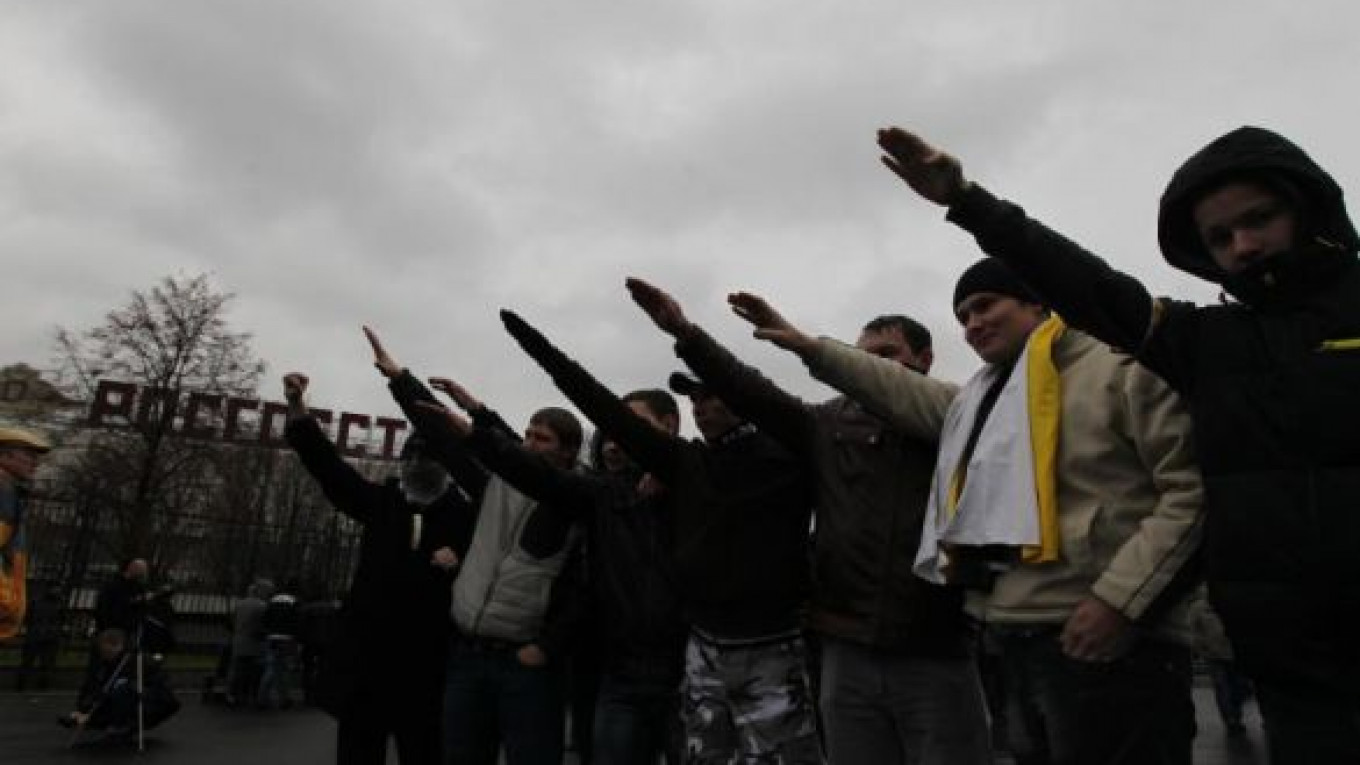Nineteen people have been killed and 168 others have been injured in ethnically charged attacks in Russia so far this year, a think-tank that monitors xenophobia and extremism said in a report released Tuesday.
Ethnically motivated violence took place in dozens of regions around Russia, but the site of the deadliest attacks was Moscow, where seven people were killed and 53 others were injured. Three people were killed and 26 beaten in St. Petersburg and the Lipetsk region saw the third most violence, with three people killed and nine beaten, the Sova Center for Information and Analysis said in an online report.
The numbers mark a slight increase from the same period last year, when 15 people were killed and 161 others were injured in ethnically motivated violence, according to numbers compiled by Sova.
In November — the month when nationalists mark National Unity Day with Russian Marches around the country — one person was killed and 24 others were injured, compared to four people killed and nine injured in November, 2012, the watchdog group said. On the day of this year's Russian March in Moscow and St. Petersburg, eight people were injured in nationalist attacks.
The watchdog organization said it attributed the shooting of Russian Migrants Federation leader Mais Kurbanov, who was wounded in a traumatic pistol attack on Nov. 11, to his group's criticism of the nationalist Russian March a few days earlier.
Russian courts have convicted 45 people for ethnically motivated attacks and 116 people for nationalist propaganda in separate hearings around the country since the start of the year, compared to 74 people convicted for ethnically motivated violence and 106 people convicted of inciting ethnic hatred in all of 2012.
A Message from The Moscow Times:
Dear readers,
We are facing unprecedented challenges. Russia's Prosecutor General's Office has designated The Moscow Times as an "undesirable" organization, criminalizing our work and putting our staff at risk of prosecution. This follows our earlier unjust labeling as a "foreign agent."
These actions are direct attempts to silence independent journalism in Russia. The authorities claim our work "discredits the decisions of the Russian leadership." We see things differently: we strive to provide accurate, unbiased reporting on Russia.
We, the journalists of The Moscow Times, refuse to be silenced. But to continue our work, we need your help.
Your support, no matter how small, makes a world of difference. If you can, please support us monthly starting from just $2. It's quick to set up, and every contribution makes a significant impact.
By supporting The Moscow Times, you're defending open, independent journalism in the face of repression. Thank you for standing with us.
Remind me later.






